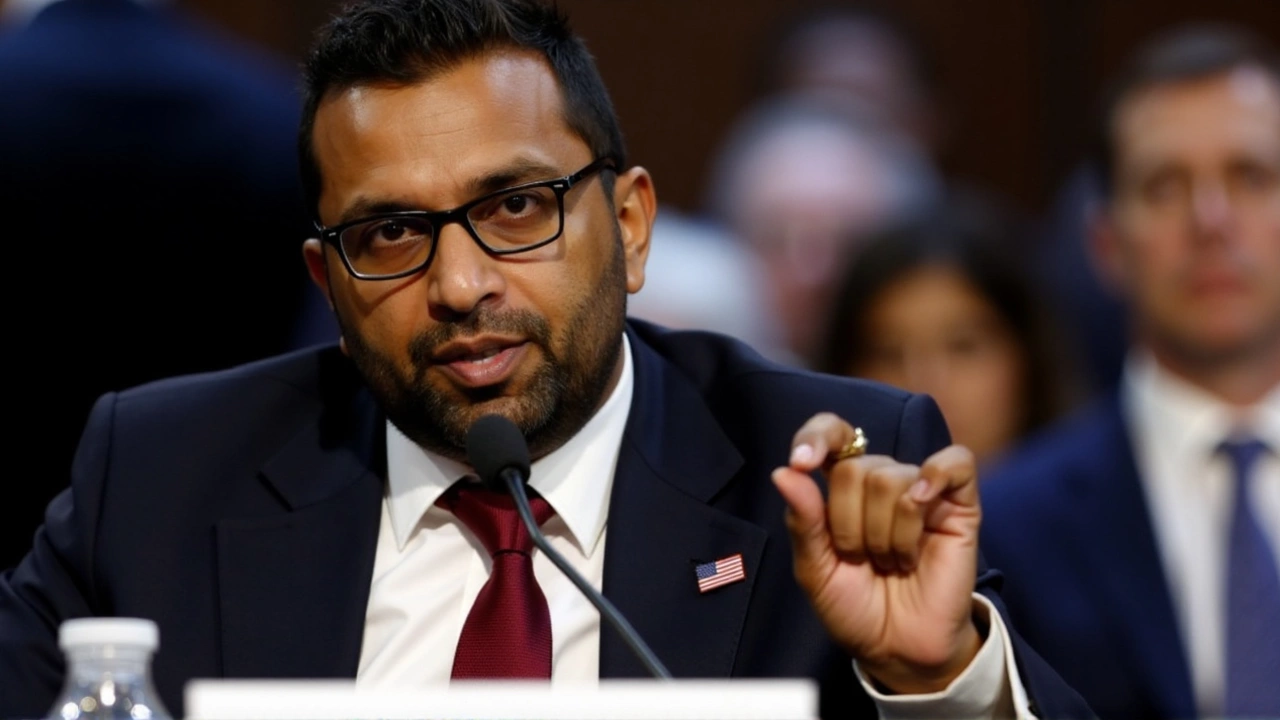Kash Patel's Personal Battle with Racism
When Kash Patel, President Trump's nominee for FBI Director, faced the Senate Judiciary Committee, it wasn’t merely his qualifications that took center stage. Seated in the formal surroundings of Capitol Hill, he shared a poignant narrative of personal adversities. Born to a legacy of immigrants, Patel, 44, has faced challenges that stretch far beyond his professional realm. During the hearing, he recounted his encounters with racism, an issue glaringly intertwined with America's cultural tapestry. His narrative unearthed the raw reality of how some individuals in positions of influence confront deep-seated prejudices even today.
Addressing a question posed by Senator Lindsey Graham, Patel candidly expressed his experiences of racism throughout his life—a life intricately woven with the trials and triumphs of an immigrant background. Senator Graham's inquiry served as a catalyst, prompting Patel to share a chilling anecdote: after Congress had made his personal data public, he received direct threats against his life. It came to a point where relocating wasn't just a choice but a necessity for the sake of his and his family's safety. The gravity of his situation was further accentuated as Patel narrated the derogatory taunts he endured. He was derogatorily labeled a 'detestable sand nigger' and callously instructed to 'return' to where he belonged, with his so-called 'terrorist home friends.'
The Family's Enduring Legacy
The historical backdrop of Patel's familial lineage is starkly compelling. His father’s escape from Uganda under the tyrannical rule of Idi Amin, and his mother’s roots in Tanzania, add layers of richness and endurance to his personal story. Both present for moral support during the hearing, Patel's parents embody the fortitude that immigrant families often must muster in the pursuit of a better life in foreign lands. Their presence not only signified familial solidarity but also marked a moment of profound pride and legacy, as their son stood on the brink of a potentially historic appointment.
The Historic Significance of Patel’s Potential Leadership
Amid the storm of personal revelations, there is an equally compelling professional narrative. If Patel were to be confirmed, he would shatter a glass ceiling, becoming the first Hindu and Indian American to assume the role of FBI Director. This potential appointment is bound to be a watershed moment in the annals of American governance, symbolizing an evolving acceptance and integration of diverse cultural identities within the nation's highest echelons.
Supporting this nomination, Senator Thom Tillis was emphatic about Patel's qualifications. He underscored his commendable expertise and unwavering dedication to justice. Tillis's endorsement serves not just as a testament to Patel's professional capabilities but also as a validation of the merits of diversity in pivotal roles within governmental institutions.

Tackling Racism at the Top
The narrative surrounding Patel’s nomination reverberates beyond personal experiences, touching on broader themes of systemic racism. By bringing forth his personal encounters in an official setting, Patel underscores a phenomenon encountered by countless marginalized communities. The threats and derogatory remarks aimed at him reveal a side of America many often overlook or choose to ignore. His testament serves as a rallying cry for those subjected to such injustices, amplifying the need for awareness and reform in the quest for equality and respect for all, regardless of their heritage.
The broader question now is how such personal experiences might influence Patel’s approach should he take up the mantle of FBI Director. There's anticipation over whether his intimate understanding of ethnic and racial prejudices could herald more inclusive practices within the justice system. The FBI, a crucial establishment in the U.S., has the potential to see further evolution under a leader who has personally battled prejudice. This could pave the way for new policies and practices that resonate with fairness and equity.
The Path Ahead
As the nomination heads towards a decision-making phase, all eyes will be on how Patel's personal history and professional acumen sync together in this context. Aligning his decisions and leadership style with the kind of future he envisions for the FBI is essential. His story is one of resilience and ambition, a narrative that challenges the status quo and invites all to envision a more inclusive and understanding future.
Irrespective of the eventual outcome of his nomination, Patel’s story as presented during the hearing has already won the admiration of many. It holds up a mirror to society, prompting deeper reflections on acceptance, diversity, and equity within America's power structures. His journey reflects not just personal triumph but the profound potential for societal change, which his potential confirmation could signal.
